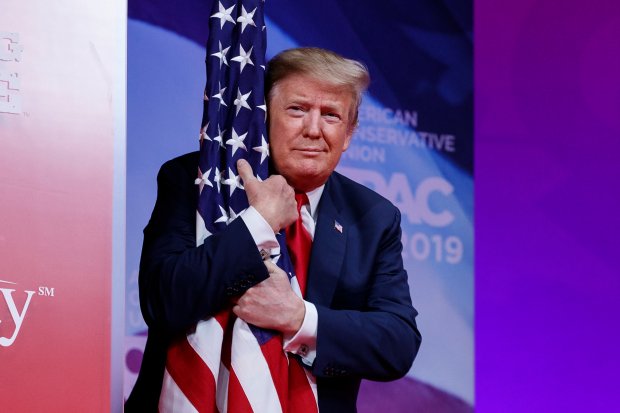France is having a big summer. The Tour de France is in progress, and the Olympic torch has almost reached Paris. While we wait for the Olympic Games to begin later this month, it’s worth keeping an eye on the political games underway already. As a core European and NATO power, should France swing further right, it could accelerate the continent’s shift in that direction.
When French President Emmanuel Macron called for snap elections in parliament following his party’s poor performance in last month’s European Union election, many feared his gamble would usher in a far-right victory. That fear was enough to bring disparate political groups together to defeat the common foe of Marine Le Pen’s National Rally (RN), a party with fascist roots.
But now that the immediate threat has receded, will they be able to work together to govern too? Should they fail to, the centrist and leftist parties could inadvertently lay the groundwork for an even bigger far-right victory in 2027. That could bring France, and Europe, back to a political reality it hasn’t faced since World War II.
To understand the significance of the French election, it’s essential to understand its system. France has many political parties and a two-round vote for the National Assembly. This means French citizens have two chances to use their vote as their voice. The first round is often rife with protest votes and aspirations, while the second round offers a more practical, often binary, choice.
The second round also provides an opportunity for shrewd deal-making, which France’s centrist and leftist parties have used for generations to keep the far right out of power.
That was the pattern of this election as well. RN took a commanding lead in the first round, so Macron’s centrist coalition Ensemble and the left-wing alliance New Popular Front (NFP) coordinated to ensure RN couldn’t do the same in the second. They each endorsed whoever’s candidate did better in each district and withdrew the weaker-performing candidates to ensure the left and center didn’t split the vote.
This kind of tactical approach to elections wouldn’t be possible in a first-past-the-post contest like we have in the United States and is uniquely suited to systems that elevate party and platform over personality.
But the ability of France’s electoral system to moderate some extremes doesn’t necessarily translate to effective governing, and a failure to govern well will inevitably be punished in the next election.
This vote was only for parliament, not the president, so Macron will remain in place. That could make for a difficult working relationship depending on what coalition comes together to form a government.
With no group coming close to winning an outright majority, only a combination of parties can pull together enough seats to do so. That means compromising on policy differences and personnel enough to agree at least on a candidate for prime minister.
Based purely on numbers, the leftist NFP would look best poised for leading a coalition government, having secured the biggest portion of seats with 182. Macron’s Ensemble alliance came in second with 163, and RN trailed in third with 143.
The NFP, however, is a recent creation cobbled together only a month ago. It has no clear leader and many policy disagreements among its constituent parts, spanning the Socialists, the Greens, the Communists and — the most radical leftists — France Unbowed. It’s a marriage of convenience already prone to internal bickering.
The biggest obstacle to a left-center alliance appears to be France Unbowed’s hard-liners. It took the largest portion of NFP’s seats, so it feels entitled to lead the charge, but it’s also the most divisive. This poses a major challenge to expanding the coalition with centrists, or even settling on a consensus prime minister candidate within NFP to propose.
Macron’s centrists are hoping that the NFP’s dysfunction gives his alliance an opportunity to pick off enough mainstream left support to reach a majority itself. But they need to find an additional 126 seats to reach the 289 necessary to control the National Assembly, and NFP’s members are holding together so far.
In the absence of a grand coalition that can clearly lead, France seems doomed to live under the political deadlock of a hung parliament and split government, which won’t bode well for the centrists and leftists the next time around.
Meanwhile, RN might not have fared as well as expected, but it still saw historic gains, increasing its hold dramatically from only 89 seats in 2022. On top of this, a government that can’t deliver results is an easy target for the opposition, so this could position RN well for 2027.
Those who fear that a far-right rise risks a fascist future should welcome the outcome of this election as good news but recognize that this success could be only partial and temporary.
Coordinated campaigns may have staved off the far right this time around, but effective governance is still needed to prevent it next time too.
Elizabeth Shackelford is the Magro Family Distinguished Visitor in International Affairs at Dartmouth College and a foreign affairs columnist for the Chicago Tribune. She was previously a U.S. diplomat and is the author of “The Dissent Channel: American Diplomacy in a Dishonest Age.”
Submit a letter, of no more than 400 words, to the editor here or email letters@chicagotribune.com.



